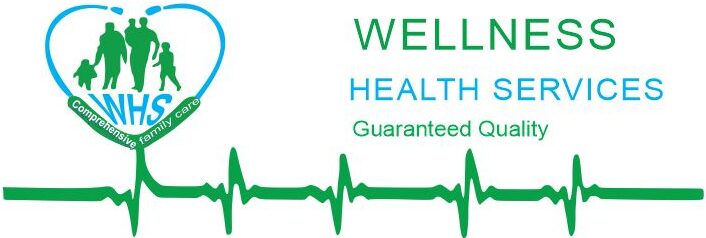“What if one simple screening could save your life?”
Cancer screening isn’t just for the elderly—it’s a life-saving tool that, when done at the right time and for the right person, can detect cancer early when treatment is most effective. But knowing what to screen for and when can be confusing.
This article simplifies current cancer screening guidelines, grounded in the latest research from leading institutions like the American Cancer Society (ACS), USPSTF, JAMA, and The Lancet—so you can take control of your health with clarity and confidence.
🧒 Ages 21–29: The Early Start
✅ Cervical Cancer
- Start Pap smear at age 21, repeated every 3 years.
- HPV testing is not typically recommended in this age group unless Pap is abnormal.
Why it matters: HPV is a leading cause of cervical cancer, and early screening detects pre-cancerous changes before they become invasive.
👩 Ages 30–39: Layered Protection
✅ Cervical Cancer
- Pap + HPV co-testing every 5 years, or
- Pap smear alone every 3 years if the HPV test is unavailable.
This combined approach catches both early cell changes and high-risk viral strains.
✅ Breast Awareness
- Clinical breast exams during routine checkups.
- Self-breast exams are optional, but being “breast aware” is encouraged.
🧔♀️ Ages 40–49: Critical Transition
✅ Breast Cancer
- New 2024 USPSTF guidelines recommend biennial mammograms starting at age 40.
- This change reflects an increase in cases among women in their 40s and improved survival rates with early detection.
✅ Colorectal Cancer
- Start colorectal screening at age 45, especially with stool-based tests (FIT, gFOBT) or visual exams like colonoscopy every 10 years.
- Individuals with a family history may need to begin earlier.
✅ Cervical Cancer
- Continue Pap + HPV testing every 5 years.
🧑🦱 Ages 50–64: Full Screening Mode
✅ Colorectal Cancer
- Continue screening via:
- FIT test every year
- Colonoscopy every 10 years
- Stool DNA test (e.g. Cologuard) every 3 years
✅ Breast Cancer
- Continue mammograms every 2 years until at least age 74.
- High-risk individuals may benefit from annual screenings.
✅ Prostate Cancer (Men)
- Begin shared decision-making about PSA testing at age 55, especially for individuals of African descent or those with a family history.
- Routine screening is not recommended after age 70 unless there is a high risk.
✅ Lung Cancer (High-Risk Individuals)
- If you’re aged 50–80, smoked for 20+ pack-years, and currently smoke or quit within 15 years, low-dose CT scans annually are advised.
👵 65 and Older: Tailored Screening
✅ Cervical Cancer
- May stop at age 65 if prior 10 years had normal results.
- Continue if no adequate past screening.
✅ Breast and Colorectal Cancer
- Continue screening if life expectancy ≥10 years.
- Screening may be unnecessary if significant comorbidities exist.
✅ Prostate & Lung
- Screening becomes individualized—consider overall health, life expectancy, and potential harms of overdiagnosis.
⚠️ The Truth About Overdiagnosis
Many cancers, especially prostate and thyroid, may grow so slowly they never cause harm. Overdiagnosis leads to unnecessary stress, biopsies, and even overtreatment. That’s why shared decision-making with your doctor is crucial.
🧬 The Future of Screening: Personalized & AI-Powered
New tools are emerging that customize screening frequency and methods based on genetics, family history, risk scores, and AI algorithms. This approach minimizes harm while maximizing benefit—especially in underserved populations.
🎯 Takeaway: Screen Smart, Live Long
Cancer screening is not one-size-fits-all. It’s age-specific, risk-informed, and potentially life-saving. Don’t wait for symptoms. Get informed, talk to your healthcare provider, and follow evidence-based guidelines that are tailored for your stage of life.
🔗 Want Personalized Support?
At Wellness Health Services, we offer age-specific cancer screening packages and health coaching tailored to your needs. Book a consultation today and take the next proactive step in your health journey.
📚 References
- American Cancer Society. Cancer Screening Guidelines by Age. cancer.org
- U.S. Preventive Services Task Force. Breast Cancer Screening Recommendations. uspreventiveservicestaskforce.org
- JAMA Neurology & Internal Medicine (2022). Step Count and Mortality/Dementia Risk.
- Verywell Health (2025). Only 14% of Cancers Are Detected via Screening.
- Harvard T.H. Chan School of Public Health. Updates on Cancer and Lifestyle Prevention.
- National Cancer Institute. Colorectal and Lung Screening Tools.
- Mayo Clinic & WHO Cervical Screening Guidelines.
- Kraus WE, et al. (2019). JACC – Step Count and Health Outcomes.

